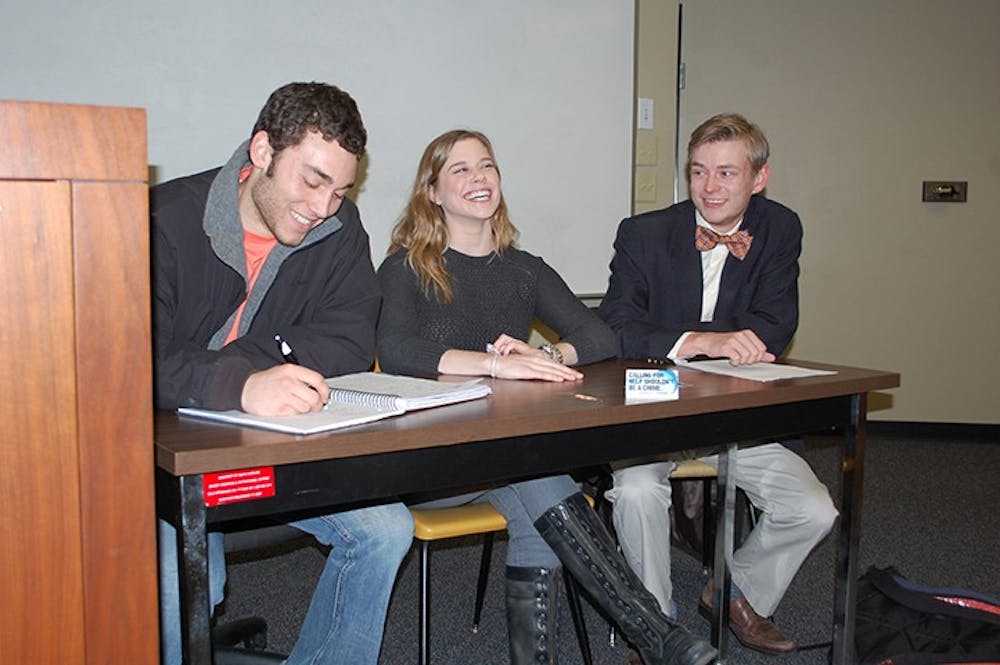USC chapter of Students for Sensible Drug Policy fight for narcotics reform
Every year, hundreds of USC students are caught with a weed stem in their desk or a non-prescription Adderall pill in the folds of their car seat. Every year, students dial 911 for a dangerously intoxicated partygoers and get slammed with underage drinking charges. Sentences are dealt, scholarships are lost and lives are forever altered as once-promising students are forced to put the pieces back together.
The members of Students for Sensible Drug Policy at USC, or SSDP, want to change the way the university educates students on all things drug-related.
According to the international organization’s website, SSDP is a grassroots — no pun intended, presumably — organization, led by a student-run board of directors dedicated to ending the war on drugs.
“We started this organization because most of the drug laws that we have today are so wildly outdated you can see it without knowing how to read legal documents or having a medical background,” said Brandon Santiago, a third-year global supply communications and marketing student and SSDP board member at USC.
The USC chapter has more scientifically driven motives than the national organization. They want to remove the taboo associated with narcotics like marijuana, psilocybin mushrooms, MDMA and LSD, so researchers nationwide can legally study their potentially beneficial medical uses, Santiago said.
“It’s still illegal to research THC (an active ingredient in marijuana) in the United States, except in California and Washington,” Santiago said. “[Researchers] can be arrested federally. People are risking their lives and their families and everything they own just to see if maybe you can turn this into a medicine.”
SSDP’s USC group also wants to pass a 911 good samaritan policy on campus. Such a rule change would stop police from arresting intoxicated students who call 911 for a friend who took too much.
USC has said it doesn’t want to waive its right to make students take classes on the consequences of drinking and drug use because it thinks those classes help prevent future problems.
“They reserve the right to punish people because they think it’s important to their authority,” said Pete Kahl, a third-year psychology student and SSDP board member at USC.
Another goal of the organization is to broaden USC’s drug education. Every student is required to pass an online AlcoholEdu course before they can even register for classes, but students aren’t required to learn about drugs like Adderall or MDMA.
“One thing we’re talking about having are weekly seminars that are based on what’s happening in town,” Santiago said. “For example, if Skrillex came to town, we would have a seminar on safe molly use.”
The lack of education comes back to the cultural taboo surrounding drugs, Kahl said. That is, USC has accepted that many students will drink, so instead of simply telling them not to, it educates them on how to be responsible. But that level of acceptance and education hasn’t come to drugs.
“There’s no denying that the drugs are there and people are going to be doing them,” Kahl said. “Instead of stressing just abstinence, we want to stress what the drug is, how to do it safely and whether or not you even want to do it.”
SSDP at USC is open to all students and meets Mondays at 7 p.m. in room B112 of the Honors Residence Hall. For more information, follow the group on Twitter @SSDP_SC or visit schoolsnotprisons.com.

